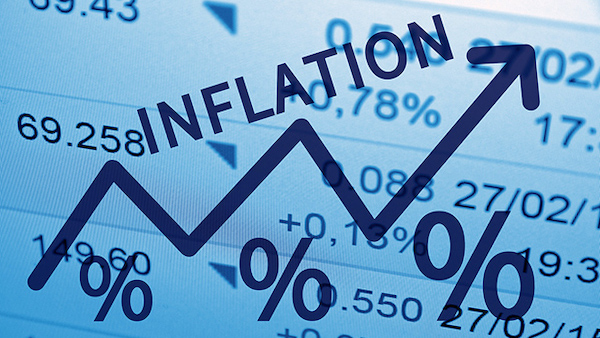Business
Border closure, VAT drive inflation to 4-month high : Is Nigerian govt overwhelmed by the crisis it created?

Economic policies instituted by the Nigerian government are fighting back like a cornered fox. The National Bureau of Statistics (NBS) on Friday released its Consumer Price Index Report for December 2019, with inflation rate spiralling from 11.85% the month before to 11.98%, the highest in four months.
Inflation in Nigeria has been on the rise for four consecutive months and data gleaned from the document reveal that inflation rate rose year on year from 11.44% at the end of 2018 to 11.98% as 2019 wound down.
Trend shows that the four months started from September, following government’s decision the month before close some of its land borders.
That protectionist reform received a boost last October, when the customs chief announced that movement of goods through land borders had been indefinitely suspended.
Beyond its detrimental impact of trade, economic pundits worry that border closure will stand in the way of the African Continental Free Trade Agreement (AfCFTA), especially its ambition of achieving seamless intra-African trade by removing hard border, when it eventually launches.
The four-month period is the longest inflationary run in roughly two years, putting further strain on both disposable and discretionary incomes, as the value of Naira shrinks tighter.
Data gleaned from the bureau suggest that the upward progress of inflation would have had far-reaching negative implications for household income and consumer spending. For instance, food inflation, a major constituent of the inflation index, surged by 14.67% in December 2019, up from 14.48% posted the month before.
Spikes in the prices of staples like meat, fish, bread and cereals, oils and fats, potatoes, yams and other tubers accounted for the rise in the food index.
With the implementation of the new Value Added Tax (VAT) rate of 7.5% beginning this week, the Organised Private sector has lambasted the new fiscal regime, especially its potential to up the poverty level government has claimed numerous times to be curbing. Government has made its relentless resolve to amass well over N2 trillion from VAT alone this year known even if this means that it would impoverish the teeming population of Nigeria poor people more.
The Finance Act is government’s sleight of hand aimed at making the rich richer and the poor poorer in the name of economic expansion.
Timothy Olawale, the Director General of Nigeria Employers’ Consultative Association (NECA) said earlier this week that “the common man will definitely be at the receiving end of the increase in VAT. Even if businesses are taxed more through likely illegal levies and rates outside the provisions of the law, they will naturally pass the cost to the customers whose purchasing power is already at the lowest ebb.”
It is probable that the course inflation will take as the years advances will confound the expectations of many as the year advances.
Join the conversation
Support Ripples Nigeria, hold up solutions journalism
Balanced, fearless journalism driven by data comes at huge financial costs.
As a media platform, we hold leadership accountable and will not trade the right to press freedom and free speech for a piece of cake.
If you like what we do, and are ready to uphold solutions journalism, kindly donate to the Ripples Nigeria cause.
Your support would help to ensure that citizens and institutions continue to have free access to credible and reliable information for societal development.
























